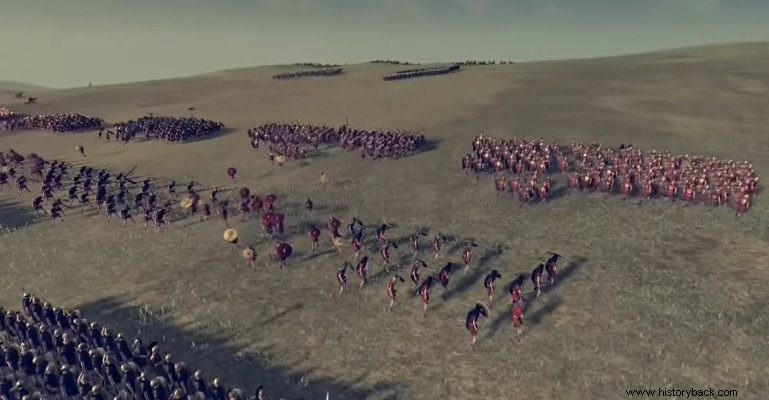
The first battle of Zela was fought in 67 BC. between the forces of the Pontic king Mithridates VI and the Romans under Gaius Valerius Triarius. In the period 88 – 75 BC Mithridates fought twice against the Romans and was badly defeated.
The third war began in 75 BC. The Romans enlisted the two lieutenants Lucius Licinius Lucullus and Marcus Aurelius Cotta. Mithridates defeated Cota at Chalcedon in Asia Minor, but was defeated by Lucullus at Cyzicus.
Lucullus then campaigned in Euxine, but was forced to return to Asia Minor and eventually fight against Mithridates' ally Tigranes, king of Armenia. Then Mithridates attacked the Romans who were left in central Asia Minor and defeated them.
After this the legate Triarius moved with two legions and an unknown number of auxiliaries to meet him. According to Plutarch, Triarius was in a hurry to crush Mithridates himself and gain glory. The sources do not mention the strength or composition of Mithridates' army.
The battle
The two armies faced each other on the plain of Zela, where they camped. Mithridates had ordered a ditch to be dug which he had filled with water. According to the ancient sources a tornado hit the plain. Both rivals considered the natural phenomenon as a favorable omen.
The Romans left their camp and prepared to attack. But Mithridates moved smartly. He left a small part of his army to engage one Roman wing and threw the bulk of the army against the other, crushing it.
Mithridates then placed himself in charge of the cavalry and surrounded the Roman wing which was still fighting. The Romans pressed forward towards the moat and many fell into it. Soon the moat was filled with Roman corpses. But Mithridates was also seriously wounded.
According to the sources, a "magician" named Agaris healed him with snake venom. Only a few hours after the almost fatal blow Mithridates had received he was on horseback again.
But by then the battle had ended with the victory of his army. The Romans had over 7,000 dead, including 24 Tribunes and 150 centurions. A Roman centurion who pretended to want to speak to the king. But suddenly he attacked Mithridates and wounded him in the thigh.
His army temporarily panicked. But the king's Greek physician, Timotheus, saw that the wound was not serious and asked his bodyguards to lift him up so that his soldiers could see him.
Due to this incident, however, the pursuit of the defeated Romans ceased. The surviving Romans managed to join the forces of Lucullus. The Roman commander wanted to attack Mithridates but his men refused to follow him. Thus Mithridates remained victorious, temporarily. In 63 BC he would meet his fate.
